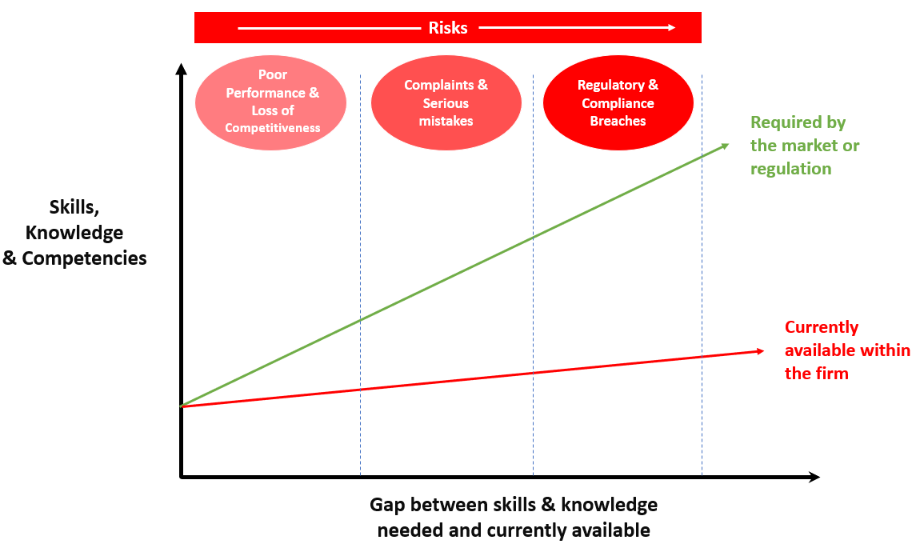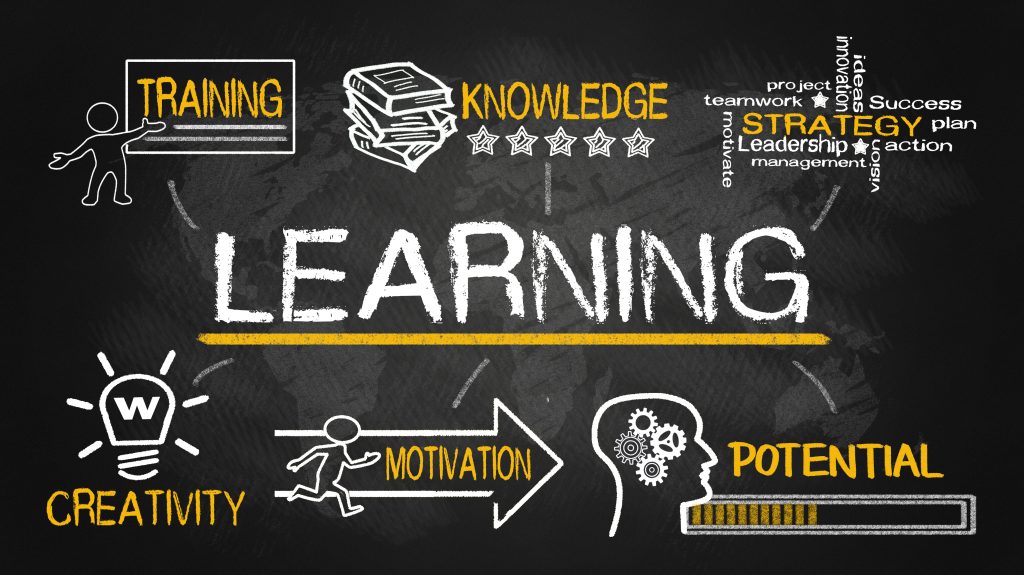As we start 2022, professional services firms, like most businesses, face ongoing challenges, continued disruption and great uncertainty as a result of the Virus and economic conditions.
The temptation in periods of uncertainty is to hunker down and delay investment decisions. Not that those buying a new house have read the memo! But, being too cautious with ongoing investment carries great risk as well. Firms can soon lose ground against their competitors, not keep up with the shifting needs and expectations of their customers, and fail to exploit opportunities to improve efficiency and productivity.
This is particularly important for professional services firms when it comes to investment in their valuable people. Training and other learning and development programmes may be seen by some as a luxury or an overhead that can be avoided without major disruption or impact. In reality, this couldn’t be further from the truth. In fact, I would go as far as saying that a firm’s ability to survive and thrive is contingent on the continued investment in learning and development.

Sustainable growth & prosperity are contingent on ongoing Learning & Development
Yes, I know you think I am bound to say that as an L&D professional but let me briefly explain how an investment in learning and development drives financial performance, mitigates business risk and empowers and engages your valuable people:
Skills and Knowledge are a valuable asset
Valuable in the sense that:
- The quality and depth of skills and knowledge can represent a source of competitive advantage.
- The selling of services derived from those skills and knowledge are the primary source of income for most firms. Arguably, fewer skills and knowledge equals less income.
But the value of skills and knowledge can erode over time and even become worthless unless they are constantly refreshed and renewed. Changes in legislation, best practice, technology, internal processes, loss of key members of staff and customer expectations all demand the regular updating and maintenance of skills and knowledge.
The erosion of skills and knowledge increases business risk
The greater the gap widens between available skills and knowledge and those demanded to compete effectively in the market whilst meeting professional standards, the bigger the risks that will be faced. Risks such as:
- Not delivering on promises to customers (i.e. sub-standard services that do not deliver value)
- Mistakes and complaints
- Regulatory breaches (i.e. failure to give appropriate advice or meet set standards of compliance).
Each of these risks carries a financial cost:
- Increased time spent by supervisory staff correcting errors
- Lost income from a customer that takes their business to a competitor
- The substantial time it takes to put right mistakes, manage complaints and deal with outcomes from regulatory visits. There are potential fines too!
- Reputational damage means new, good quality, customers are harder to find

Operational productivity and efficiency and overall financial performance
Gone are the days when professional services was a licence to print money. Never before has there been such a high level of accountability to deliver value for money. Just because the time is on the clock and recorded doesn’t mean that the customer will be willing to pay for it!
Those that like their numbers will be keeping a close eye on utilisation rates and recovery rates. Optimising these rates requires the right people (i.e. appropriate charge-out rate and level of skills and knowledge) doing the right jobs.
Again, the ongoing investment in learning and development ensures teams maintain an appropriate mix of skill, knowledge and expertise, thereby promoting efficient and productive working and optimising the net value derived from time spent.
Individual and team performance
So far, I have focused on the technical aspects of the work. But, learning and development are not just about technical skills. High performance also requires positive attitudes and behaviours (e.g. commitment, work ethic, values, motivation, high standards).
High performance is not achieved from skills alone. It also requires positive attitudes and behaviours.
This is especially important when having to respond quickly to changing market conditions. A state of flux, constant change and great uncertainty can be very unsettling and stressful for those working within the organisation and if this is not handled sensitively can lead to underperformance, a lack of commitment and buy-in and poor morale. Arguably, these are the very conditions we are facing right now!
Therefore, as well as technical training (e.g. professional qualifications), forward-thinking firms also need to invest in developing and maintaining the skills, behaviours and attitudes within their leadership and management teams to get the best from their people/teams and directly respond to the challenges I highlight above.
Leaders and managers need to be able to:
- Train and develop those they manage (for all the reasons highlighted above)
- Inspire others to follow shared goals and objectives
- Communicate effectively so everyone knows what they are doing and why
- Delegate effectively thereby optimising utilisation and recovery rates
- Overcome resistance to change and successfully manage disagreements or underperformance
- Using all the skills above to create the conditions that empower, engage and motivate people recognising that pay alone will not achieve this.
We cannot and should not assume that highly proficient, competent and technically minded business leaders and managers will have all the people management skills they need to successfully manage their people and team (or be aware that they need them!).

The retention of skills and talent
As I highlight above, skills, expertise and the right behaviours/attitudes are needed to generate income and maintain standards and are incredibly valuable. We, therefore, do not want to lose them or the investment we have already made in creating them! However, demand is outstripping supply, and therefore high calibre people are much sought after (and they know it) and your competitors are constantly trying to poach them.
And, these talented individuals realise that the provision of ongoing learning and development is key to achieving their personal goals (e.g. higher income, opportunity for promotion). The risk, therefore, is that by not investing in their ongoing development you will be seen as a barrier to their goals or that you do not value or appreciate their contribution. If that is the case, don’t be surprised if their morale and commitment suffers or they up and leave and join one of your competitors!
Good pay is important but talented people are also highly motivated by the opportunity to grow and develop.
So, ongoing investment in learning and development is a no-brainer?
Absolutely! Given the link between skills, knowledge and the right attitudes and behaviours and individual, team and overall firm performance, it is clear why ongoing investment in these areas must be made and maintained.
In fact, you are now probably thinking you should increase your investment in learning and development and not reduce or suspend it! Don’t get me wrong, managing operational costs and overheads is vital to achieving financial success and is just as important as efforts to increase income. But, you still need highly skilled and experienced people to manage those costs effectively so as not to prune too deeply!
If you would like to find out how learning and development can transform your business and promote sustainable growth, please contact us at [email protected].
